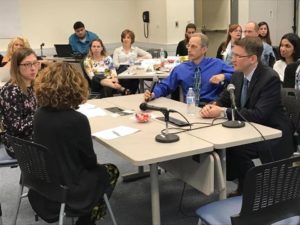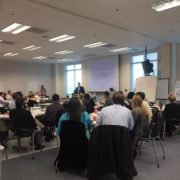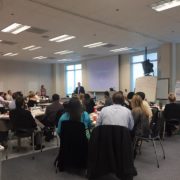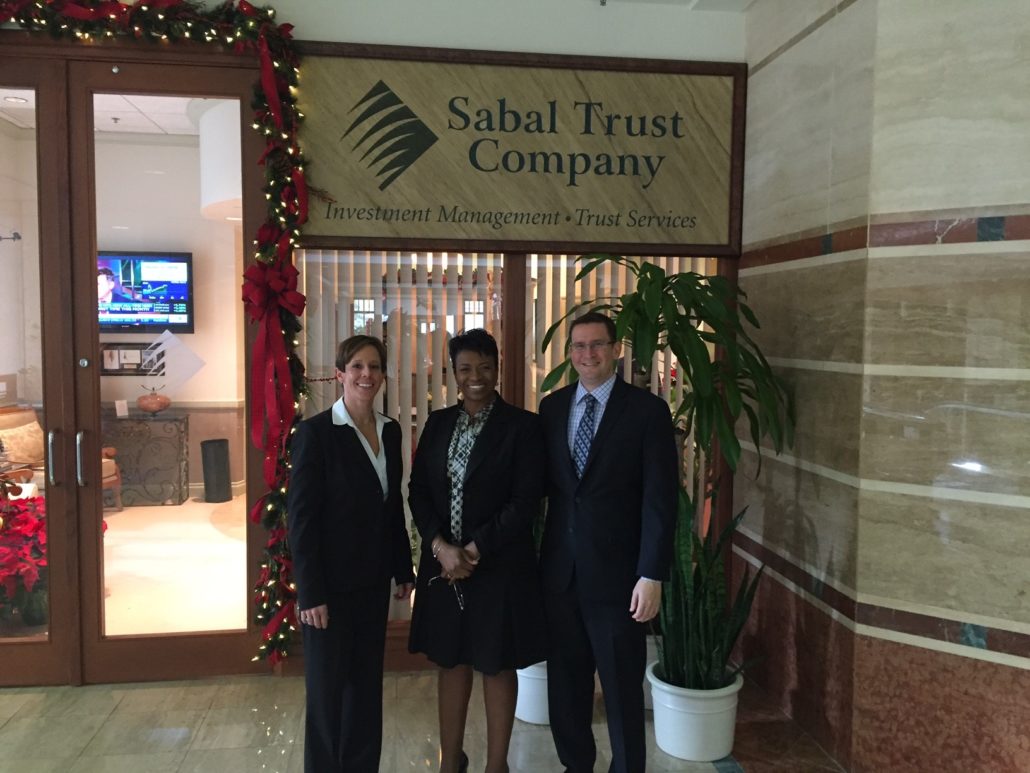Fifty plus attorneys, mental health professionals, financial professionals, and students successfully completed a two-day Introductory Collaborative Family Law Training at Nova Southeastern University in Ft. Lauderdale, Florida. The training was led by Family Diplomacy managing attorney Adam B. Cordover along with psychologist Jeremy Gaies and accountants Kristin DiMeo and David Harper, all of the Tampa Bay Collaborative Trainers.

Adam B. Cordover, Jeremy Gaies, Kristin DiMeo, and Enid Miller Ponn Demonstrate a Collaborative Divorce Team Prep Meeting
The purpose of the training is to educate members of various professions on how they can help families go through divorce privately, efficiently, and as peacefully as possible.
“Excellent! Well organized, informative, funny, and thorough! You kept our attention during some very dry ‘legal-ease,’ and are all great team players,” praised Professor Randy Heller, the organizer of the training.

Adam B. Cordover alongside David Harper going over a fact pattern at a collaborative divorce training.
“You are amazing!” proclaimed Nancy Brodzki, president of the Collaborative Family Law Professionals of South Florida, the main sponsors of the training. When asked what other topics she was interested in attending, Nancy responded, “Any collaborative training you offer.”
“Adam is extremely knowledgeable, well-spoken, and a huge asset to the collaborative divorce program,” said attendee and attorney Honit Simon. “Adam did well in combining practice with theory,” commented another attendee, mental health student Solomon Udo.
Read more →












